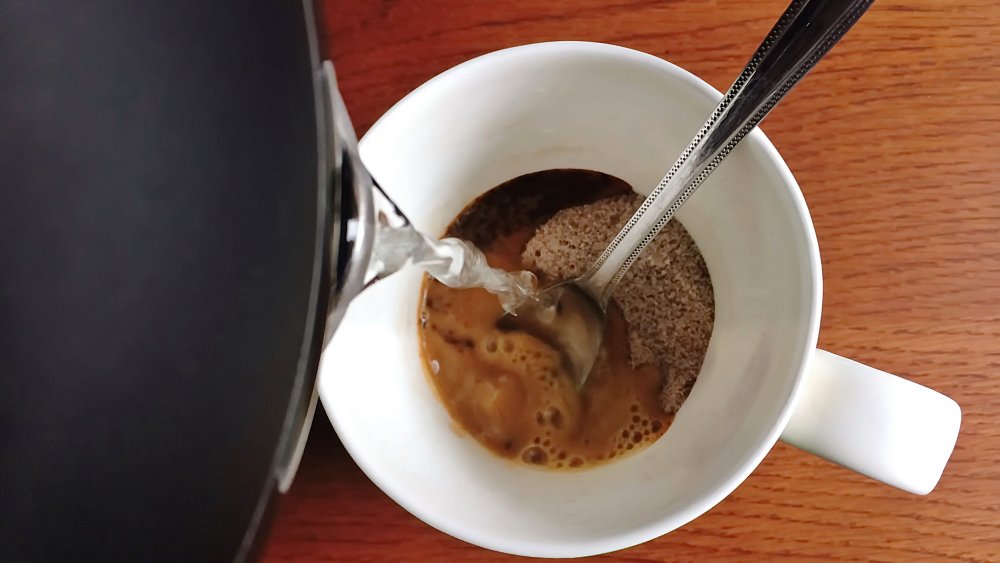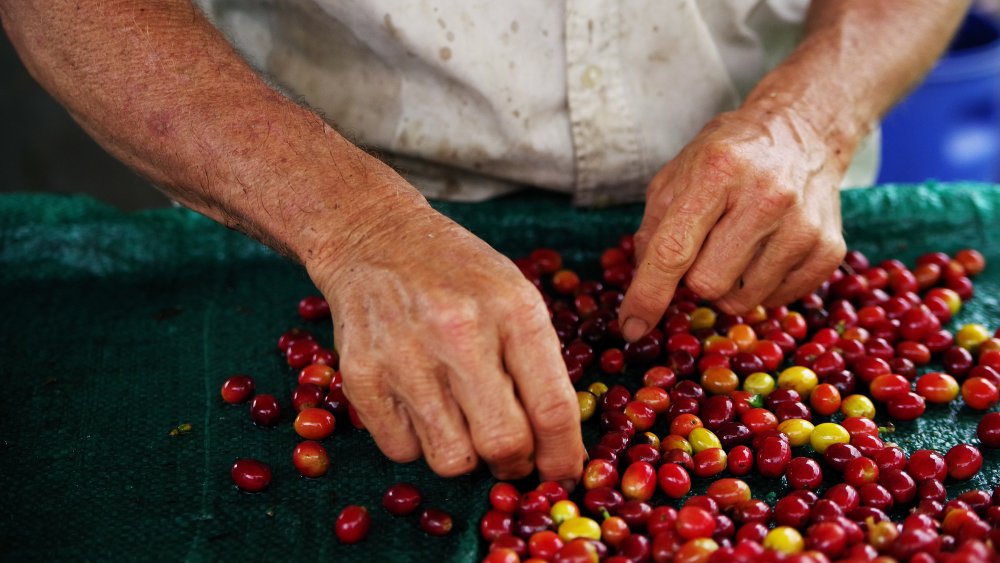You Should Avoid Drinking Instant Coffee. Here's Why
Serious coffee drinkers know that instant simply doesn't compare to the real thing, no matter how lovingly it's prepared. As the Huffington Post notes, although instant coffee is in fact made from real coffee, its journey to its final form is more labor intensive, which is what ends up robbing the drink of its deeper flavors. Whole beans are roasted, ground, and brewed just like with fresh coffee — before the water is removed entirely, leaving only the dehydrated coffee crystals behind. To make it coffee once more, hot water is added. Let's face it, that doesn't sound nearly as appetizing as making freshly ground coffee, even though there are times when only the quick convenience of instant will do.
However, instant coffee isn't just an inferior-tasting variety of our favorite hot drink, it's also a potentially less healthy kind. Preparing "proper" coffee may take more time and effort, but after considering the below, you may wonder whether the money and time saved is all that important in the long run.
Instant coffee beans are bad
Many people who need a daily caffeine hit will reach for the instant coffee because it's quicker to make at home and cheaper than stopping by the local Starbucks. However, as coffee blog Darks notes, instant coffee is generally more affordable because its manufacturers are utilizing the most cost-effective beans available, which are widely rejected by more discerning coffee sellers. Plus, these beans might even be unethically sourced from farms or regions with less stringent laws — or none at all — in place to protect workers.
Likewise, beans used in the production of instant coffee are usually air roasted over a short period of time, say 10 minutes or thereabouts, before being roasted to what most drinkers would consider a dark enough profile. This one-size-fits-all method results in a poorer quality coffee with a flat taste profile.
Instant coffee has more acrylamide than fresh coffee
Instant coffee contains nearly twice as much of the chemical acrylamide compared to fresh coffee, according to Healthline. Acrylamide, also found in cigarette smoke, is formed when coffee beans are roasted and overexposure to high amounts can damage your nervous system, as well as increase your risk of cancer. Although the amount in instant coffee is still much lower than levels thought to be dangerous, consistently drinking it means you're exposing your body to more chemicals, which usually isn't a good thing. Fresh coffee contains the least amount of acrylamide across the board compared to instant and other coffee substitutes, per Polish researchers.
What's more, fresh coffee has several health benefits due partly to its caffeine content. The stimulant can be credited with improving brain function, boosting your metabolism, amping fat burn, and even reducing your risk of liver diseases. But since instant coffee contains less caffeine than the freshly brewed variety, it has fewer of these positive effects, according to Medical Daily. It's important to note that caffeine also comes with its drawbacks, and the lower amount in instant coffee may be a good thing for some people, though a better-tasting option would still be decaffeinated fresh coffee.


